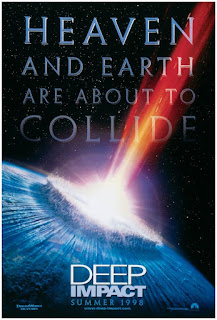All sorts of
dreadful expressions enter the language simply as a result of being used over
and over again by people who don't know any better. But I feel I must protest
when an institution of literature, learning, and community outreach—I'm
referring here to the public library system—encourages such practices in their
widely distributed promotional emails.
I received a
fund-raising appeal not long ago from the Hennepin County system in which
recipients were encouraged to give money on the basis of a patron's
enthusiastic claim that --
I sent a
courteous note to the library suggesting that the word "impactful"
was a strange conglomerate not worthy of appearing in an epistle designed to
solicit money for an institution claiming to serve the long-term interests of its
patrons.
And I actually
got a reply.
Greetings, John,
Thank you for reaching out to us! As always, we welcome all
feedback regarding the language used in our materials, and “impactful” can
certainly be a word that is controversial in terms of how it is received. Merriam
Webster has an interesting article about it here on their
website if you are interested in
reading it. You are not alone in having strong feelings about that particular
word choice!
Again, we appreciate you taking the time to send us your response,
and completely agree that language skills require continual emphasis in today’s
culture. We hope that access to and support of our Libraries will help our community
members grow in that regard.
Thank you again for your thoughtful feedback, we will certainly
take it into consideration in our future writings!
As I'm sure you noticed, there's quite a bit of evasiveness and double-talk
woven into the fabric of that cheerful response. In essence, what it says is,
"We got your email. Thanks. Follow this link."
Naturally, I followed
the link to the Merriam-Webster site, but what I found there did little to
assuage my concern. Another light-hearted salvo seemed unavoidable.
Greetings library friend (I
wrote),
First of all, thanks for taking
the time to respond to my note.
You are going to think me a
crashing bore with too much time on his hands, but I find word usage
interesting, and have a few further thoughts to share with you if you have the
time. Please consider them as speculative and curious rather than in any way
haughty or irate.
It's true, as you observe, that
many people share my view of "impactful," and the link was indeed
interesting, as you suggested. Yes, the word has been around for quite a while.
Yes, it's a "real' word. Yes, many people hate it. However, there are
good reasons why many people hate it. I'm afraid the article only skims the
issues involved without bringing serious thought to bear on any of them.
It touches on the semantic issue
by remarking: " Another complaint leveled at impactful is that it's not a
well-formed word: -ful means "full of," and impactful does not mean
"full of impact."
The authors of the article try to
wiggle out of this argument by observing that " -ful doesn't only mean
'full of.' It also means (among other things) 'characterized by,' as in playful
and tasteful."
Not true. Playful means
"full of play" and tasteful means "full of taste." In any case, impactful doesn't mean "characterized by impact." It
actually does mean "full of impact."
But impact isn't a thing. It's
actually an event. We use the phrase "point of impact" to describe the
place where a projectile hits a target, for example, or where an artillery
shell lands. A dent or a hole may be left behind, but the impact itself is
fleeting. More to the point, we might also say that a speech or a film has significant impact. But
there is little meaning in the notion that a mortar shell, an automobile
collision, or a speech, is "full of impact." Such an expression
creates the confused impression that the thing in question is "full of
hitting something else."
 |
| An "impactful" moment during the battle of Ypres |
Hitting it for good or for ill?
We really don't know. The word "impactful" is value-neutral. I ask you, why would anyone
choose such an awkward and imprecise word, when he or she could describe the
speech-book-film-institution-whatever as beautiful, profound,
thought-provoking, insightful, shrewd, mind-blowing, life-changing, nourishing, and so on.
The authors of the article you
mention take up that issue, too, but once again fail to meet it squarely.
We read, “But since when does
English like to limit itself? Synonyms abound, and most of them avoid the
opprobrium that impactful endures.”
Once again, the issue is being
avoided rather than addressed. The problem with "impactful" isn't
just that it's widely hated. The problem is that it's inferior in clarity and depth
of meaning—and also in sound, by the way—to scores of other words describing
the same phenomenon. The best reasons not to use "impactful" are that it's hard to say, it conveys little meaning, it lacks clarity, and just to
round things off, it sounds "dumb."
“The library is one of the most
impactful, far-reaching institutions in our community.”
The phrase doesn't signal the end
of the world; it's more like fingernails on a chalk board. All the same,
libraries really ought to promote clarity of expression and avoid jargon, don't
you think?
What Amy meant to say, I think, is that she has personally been
affected in a positive way by her visits to the library, and perhaps also by
participating in the outreach programs it offers. Beyond that, she has observed
that the library has had a similarly positive impact on other patrons.
Alas, that's not a catchy slogan.








No comments:
Post a Comment